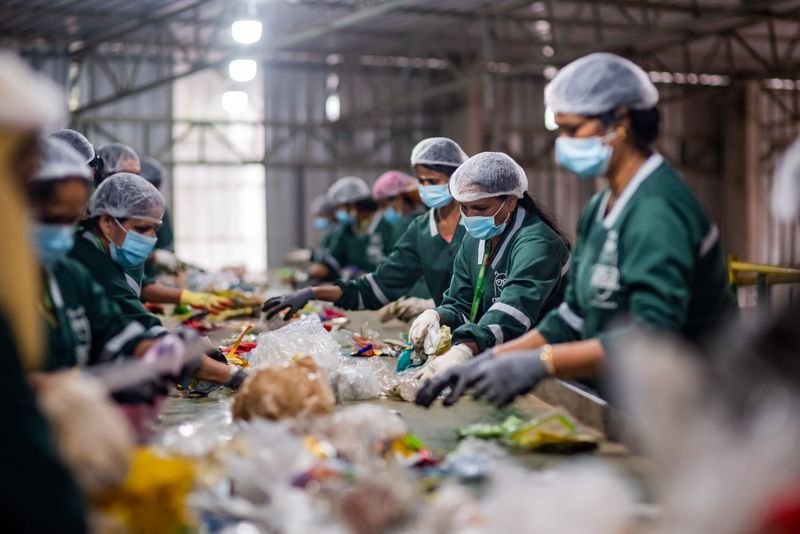Infrastructure
Transforming rural waste management systems in Kerala
PARTNER : Alliance to End Plastic Waste
Context & Challenge:
- Kerala, a coastal state in South India, generates over 130,000 tonnes of plastic waste annually. With only 3% recycled, the majority of the plastic waste, particularly low-value flexible plastics and Multi-Layered Plastics (MLP), ends up in landfills, is openly burnt, or is dumped into water bodies, causing severe environmental pollution.
- The project involved developing a model to effectively collect and process low-value plastics, improve waste management infrastructure, and promote environmental sustainability in rural villages in coastal India.
Our Intervention:
- In response to the waste management crisis in rural Kerala, rePurpose Outcomes Lab co-designed a solution together with the Government of Kerala and Green Worms, a local waste innovator, through a collaborative process.
- We conducted thorough baseline assessments to understand the types and quantities of low-value plastics and the existing waste management status. To increase community involvement and knowledge, the project implemented awareness campaigns, clean-up drives, and educational programs.
- Local women's self-help groups were engaged and trained to provide door-to-door waste collection services, incentivized through financial compensation.
- The project also established waste supply chains by setting up collection systems and material recovery facilities (MRFs) to collect, sort, bale, and transport collected plastics to authorized recycling and energy recovery units for treatment.
Key Outcomes:
- The collaborative project between rePurpose Outcomes Lab, the Alliance to End Plastic Waste (AEPW), the Government of Kerala, and Green Worms delivered waste management services to 33,340 rural households, collecting and diverting 1,040,739 kilograms of low-value Multi-Layered Plastics (MLPs) from nature.
- The project created jobs for 218 waste workers, ensuring fair working conditions and providing protective equipment.
- The initiative significantly reduced plastic pollution - measured through robust traceability and verification protocols - ensuring the project's integrity and lasting environmental impact.

Key Outcomes:
We designed and deployed comprehensive supply chains to ethically collect and process 1 million kilograms of low-value plastic polymers, benefitting 33,000 households in rural India.









